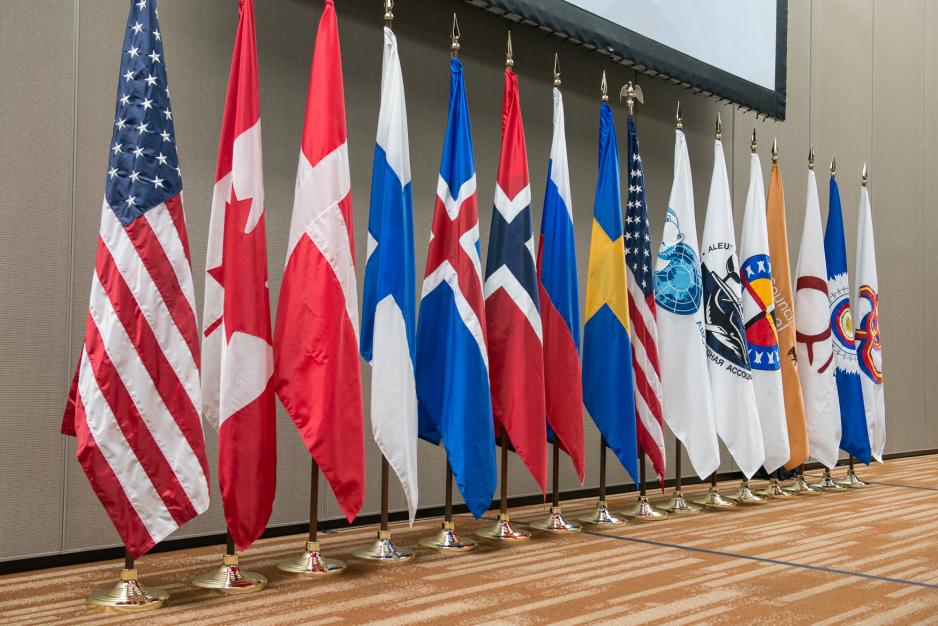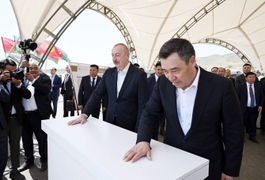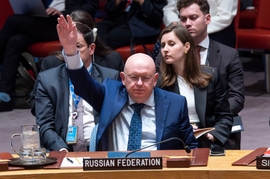Russia announced on Wednesday its decision to suspend the payment of annual contributions to the Arctic Council amid frustrations over what Moscow perceives as a lack of progress in joint initiatives and concerns about the council's evolving nature.
"At the moment, Russia's payment of annual contributions to the budget of the Arctic Council has been suspended until the resumption of practical work in this format with the participation of all member countries," the Russian Foreign Ministry told RIA Novosti.
The statement emphasized that Moscow would only resume payments when all member states actively engage in projects crucial for the Arctic region's well-being.
Key areas highlighted by the ministry include environment preservation, polar research, humanitarian efforts, and enhancing the quality of life for indigenous populations. These are issues considered vital for the sustainable development of the Arctic and have been central to the council's agenda since its inception.
When asked what actions by the council would mark a "red line", following which Moscow may exit the organization, the Foreign Ministry cited the remarks made by Maria Zakharova, the ministry’s spokeswoman. The diplomat clarified in early February that if the Arctic Council turns into an antagonistic organization, then this kind of question might come up.
The recent announcement follows warnings issued by Nikolay Korchunov, Russia's Ambassador at Large, who expressed dissatisfaction with the Council's operational effectiveness under Norway's chairmanship. Korchunov highlighted the lack of support from other members to fully restore the council's functionality, suggesting that Russia might reconsider its participation if its concerns are not addressed.
Established in 1996, the Arctic Council serves as a crucial platform for intergovernmental cooperation, particularly in environment protection and sustainable development in the Arctic region. Comprising eight member states, the Council operates on a rotational chairmanship, with each country assuming leadership every two years.
The Arctic's strategic importance has grown significantly in recent years due to the region's abundance of natural resources and the opening of new shipping routes resulting from climate change. With vast reserves of oil and gas estimated beneath its waters, the Arctic presents both economic opportunities and geopolitical challenges, especially in the context of competition between Russia and the United States.
According to the United States Energy Information Administration, the Arctic region holds substantial reserves of natural gas and oil, making up a significant portion of the world's remaining resources. The estimations show that the area may contain nearly 30 percent of the world’s remaining natural gas and 13 percent of its oil under the northern seas. Additionally, the melting ice in the North Pole has facilitated shorter shipping routes, enhancing connectivity between Europe and East Asia by up to 40 percent.







 President Ilham Aliyev shed light on the evolving contours of the peace process with Armenia during an international conference in Baku this week. ...
President Ilham Aliyev shed light on the evolving contours of the peace process with Armenia during an international conference in Baku this week. ...
 Azerbaijan and Armenia started the process of demarcation of their border on Tuesday, with the installation of the first border markers based on ge...
Azerbaijan and Armenia started the process of demarcation of their border on Tuesday, with the installation of the first border markers based on ge...
 Iranian President Ebrahim Raisi expressed Tehran’s readiness to participate in significant development projects in Sri Lanka during the inauguratio...
Iranian President Ebrahim Raisi expressed Tehran’s readiness to participate in significant development projects in Sri Lanka during the inauguratio...
 As the conflict between Ukraine and Russia escalates, the strategic importance of Kharkiv, Ukraine's second-largest city, has come sharply into focus.
As the conflict between Ukraine and Russia escalates, the strategic importance of Kharkiv, Ukraine's second-largest city, has come sharply into focus.
 Iran and Pakistan have signed eight cooperation documents in various fields, and agreed to strengthen ties to fight terrorism in the region.
Iran and Pakistan have signed eight cooperation documents in various fields, and agreed to strengthen ties to fight terrorism in the region.



